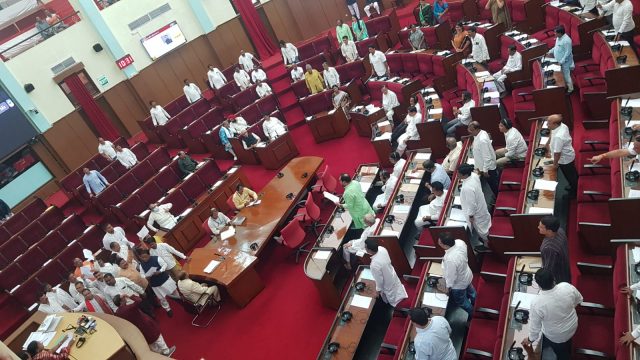Bhubaneswar: The Odisha Assembly has passed Right to Fair Compensation and Transparency in Land Acquisition, Rehabilitation and Resettlement (Odisha amendment) Bill–2023, enabling the government to exempt ‘strategic and development projects’ from mandatory social impact assessment (SIA) and special provisions for safeguarding food security.
The Bill was passed even as the Opposition parties staged a walkout and did not participate in discussions.
Revenue and Disaster Management Minister Sudam Marndi said that the processes need to be simplified to attract investments and gave examples of Gujarat, Maharashtra and Karnataka, which have amended the RFCTLAR&R Act-2013, a central law, with mandatory provision of SIA that “causes delay in acquisition of land.”
As per the amended provision of the Act, consent for the acquisition of land for some listed projects will not be required except in scheduled areas. It also has provisions to recover wrongly paid compensation under 2013 Land Acquisition law.
These projects include project vital to national security or defence of India, public infrastructure like educational institution, health, electrification, irrigation project, drinking water project, government offices, affordable housing for poor, industrial corridor set up by the state government, infrastructure projects like highways, railways and industrial project displacing family less than 100 families or acquisition of private land of less than 500 acres.
The Assembly also gave its nod to the amendment in the Odisha Land Reforms Act, 1960, aimed at bringing greater uniformity and transparency in fixing fees for the conversion of agricultural land for non-agricultural purposes. “In order to maintain uniformity and transparency in fixing conversion fees, it is proposed to amend the sub-section-2 of section 8-A of OLR Act, 1960 by proposing one per cent of the market value as the fee for conversion of land from agriculture to non-agriculture purpose,” Marndi said.
Earlier, different rates of conversion fees for the use of agricultural land for non-agriculture purposes were prescribed on the basis of the location of the land and there was a lack of transparency on the matter among field functionaries, he added.








